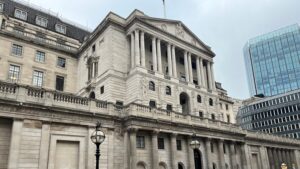“I think that the equity in high quality companies with a strategic growth opportunity is given away on the UK market,” he said, adding: “There are a lot of quoted companies in the UK that have good governance, have good market positions and do have a significant growth opportunity so I would say that the UK equity market is given away, very cheap. “
That is not to say that every single company on the exchange fits that description, he cautions but, says, as a general proposition, the UK stock market is, by and large, made up of competitive, well run, honestly-run, globally-oriented businesses, and he says, “The outlook for such companies on a ten year view is very, very encouraging.”
As proof of this view, he points to the recent merger and acquisition activity present in the market. Acknowledging that M&A is a global phenomenon, Train points out that the UK market has seen its fair share of those deals.
“The fact that Pfizer thought AstraZeneca was worth £55, when the shares had been at around £28 before the announcement of the deal shows you how much upside there was even in a major UK corporation. There are M&A deals being done at premiums of 25% of undisturbed value, that is demonstrating that corporations think there is a lot of strategic value in equity prices and I guess I would as well,” Train told Portfolio Adviser.
He also points out that the historic dividend yield of the UK stock market is 3.3%. Currently, dividends are growing at around 5 or 6%.
“Where else can you get a combination of a 3% income return plus growth in cash returned to you as the owner at probably twice the rate of inflation? It looks a really compelling proposition.”
And, while he admits that there are things to worry about: the Ukraine crisis, the Middle East and its implications for the oil price, the Scottish referendum and the general election next year, he points out: “markets always have to deal with that sort of political uncertainty and, actually, over time it doesn’t matter.”







